|
It has been such a joy to be part of this program and festival at Tennessee Rep! My new play PATHOGENESIS and these other amazing new plays by Nate Eppler, Dean Poynor, Andrew Kramer, and Doug Wright are happening right now in Nashville, Tennessee, and online at HowlroundTV.
Watch a video of my play's reading and follow-up Q&A now. You can visit Tennessee Rep's website or visit their blog to learn more about this annual development workshop and festival. Curious as to what inspired the new plays in this year's lab? Here's a look inside each of our minds as we answer that question on the Tennessee Rep blog. 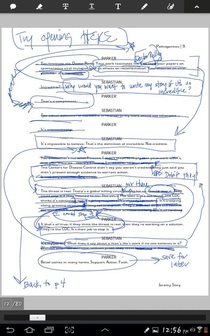 One of the key components of writing a great play is rewriting. Writing IS rewriting; it's a phrase tossed around as one of the tenets of storytelling in this modern age. Many a creative writer would probably agree with this. Playwrights have editors too. They're just called something else. And we couldn't do this without them. Who am I talking about? Plays are written for the stage, they are designed to be performed. By people. Usually out loud. Spoken. Orated. By actors. To an audience. Back when stories were handed down over campfires and around tables at the local public house, the stories evolved over time to make them better, more enjoyable, more understandable. Like the storytelling of old, plays are stories designed to be shared with a crowd of people. Yes, we have more storytellers working collectively at the same time thanks to a stage full of actors, but the idea is the same. A play needs to be read aloud, and eventually staged, to engage the "editors" that the playwright has access to. We call them actors, directors, and dramaturgs. They are one huge part of the new play development process. We'll get to the other part in a moment. For anyone reading this who has never been part of new play development, here is one quick example: a writer brings in a script, actors read it aloud, and anyone in the room offers feedback on what they just heard. Writer then takes script and then, after processing feedback, rewrites. Rinse. Repeat. Ideally, this process leads to production. Until then, playwrights need this collaborative environment and feedback to help determine what stays and what goes. While, in the end, the playwright is the ultimate authority on what words end up in the script, I'm a firm believer in readings. The voices in your head only go so far because plays aren't meant to be contained in your head. They need voices from actors. For years, I've bribed many an actor with pizza or Jimmy Johns to read my words. Every one of them were helpful. There is, however, a diminishing return on just readings. Eventually, you need more. Plays need actors, yes. They also need input from directors. From creative staff. They need the help of a theater. Since last September, I have had the joy of working on my new play, PATHOGENESIS, with the talented folks at Tennessee Repertory Theatre in Nashville. As part of the Ingram New Works Lab, I've been able to bring in pages, scenes, and drafts to their writers' room and hear my words interpreted by their amazing actors; I've received feedback from those actors, my fellow writers, and the artistic staff at TNRep. PATHOGENESIS is a father/daughter play set at the end of the world. A three-hander, the third character wasn't working at the start---his impact on the father and daughter story wasn't clicking; he is one example of a character that has significantly changed during this workshop process. Changed for the better. On top of the feedback, workshops like this one have the added benefit of offering invaluable education on the craft. I'm not the only playwright in the room, and when another writer shares work and receives feedback, that feedback can illuminate me as much as the other writer. On top of that, thanks to the set up of TNRep's program, I've had the immense pleasure of getting to know and receiving one-on-one feedback from this season's Ingram New Works Fellow, Doug Wright. If it wasn't enough that he's a master of the craft with a Pulitzer and a Tony, the man is also wicked smart, generous, kind, and inspiring as a person. Needless to say, with all that support over several months, PATHOGENESIS has evolved and developed. But we weren't done after the monthly development meetings. Now, in the past week, we took a gigantic leap forward. While the months of readings and feedback were essential in crafting the play to this point, TNRep has stepped it up in advance of the Ingram New Works Festival. Like the play evolves, so too does the method of rewriting. At this point, I can only speak for myself. If you follow Tennessee Rep on Facebook or check out their blog, you'll meet Nate Eppler, Andrew Kramer, and Dean Poynor. The plays they're writing are hysterical, poignant, surprising, and a large number of other adjectives that add up to "must see". Each of us has taken to working with our festival team separately, so I'm looking forward to seeing how the last few weeks have treated their work. For me, where I used to listen to a reading, hear feedback from the room, and go home and write, the process is now more entwined. Recently, I had the pleasure of meeting my festival cast, the wildly talented Brian Russell, Evelyn O'Neal Brush, and Patrick Waller; and my awesome director, Christopher Bosen. I tout them here, not because I'm trying to talk them up, but because our two in-depth rehearsals last week were instrumental in taking PATHOGENESIS to the next level. We spent the better part of eight hours over two nights going through the script, working the scenes as if we were heading into production. In essence, we are. The Ingram New Works Festival, while not fully staged, is still a series of plays that are rehearsed, directed, and presented to an audience in order to tell a story. We might not have sets or costumes (and right now, we don't need them), but we have the words and we have actors and directors that work with us, in the room, giving us the chance to experiment with dialogue; to hear how something sounds coming from one character verses another; to play with striking lines to let emotional beats play out between actors. The fact that I still have eight more hours coming up with these people next week? Priceless. Not all writers enjoy rewriting in the room. I love it. I love the give and take between writer and actor. I love the insight a good director brings. By the time one of my plays is nearing public display, I've lived with it for ages. I know it. Almost too well. I know the backstories, I know the subtext, I know the characters like I know my friends and family. I like to think I do. The fantastic part about an in-the-room workshop is that the actors and director can approach it like any future company. They don't have all the answers, but they'll have questions. The actors are focused, each on their role---a wonderful gift as they can help fine tune a character arc and the character herself. The director is pouring over the script looking for the story that needs to be told. This is extremely valuable as a good director will alert you to the stories you're telling (some that you never meant to tell). Having this additional playground in the weeks leading up to the festival is another reason I know Tennessee Rep gets new plays and gets that playwrights need support to bring a play to life on stage. For those already doing new play development, I'm preaching to the choir and not sharing any state secrets, but for anyone who doesn't enter the equation until the public reading, I think it's great to understand how much went into the script and development up to that point. Maybe it's a festival where this is the first read anywhere and thus it's like those first days in the room; it's new to everyone. However, if it's like the Ingram New Works Festival, then there are months of internal readings and workshops where the play is protected and nurtured and it evolves to get it to this public reading. To get it to the next stage of development. The final part of this equation, the part that I'm equally excited by and anxious about, is the audience. Having access to actors and development staff is amazing; TNRep follows through by making sure that all that work is seen. Is heard. As I said, plays are meant to be staged and performed for an audience. We take advantage of the talent in the room to edit our scripts along the way, but this is still a development festival and so the talent in the room includes the audience. I am looking forward to seeing how the audience reacts to PATHOGENESIS. We---and by "we" I mean any theatre company working to rehearse and stage a play (new or established)---have the luxury of living with it for months before an audience sees it. We get to debate character motivation and author intent and why we'll light it in cold hues instead of warm ones. An audience? They get one night. 90 minutes, maybe two hours. Maybe there's an intermission to discuss what's going on, maybe the audience is on the ride from curtain to curtain. It's one chance to tell a story. So for me, this last stage is crucial, thrilling, and terrifying. My hope is that when my play is presented to an audience, that I've articulated my story in the best way possible; that I've given my actors and director the blueprint they need to go out there and make theatre. But it doesn't stop here. My goal is to see PATHOGENESIS move on to a production and full staging. So, I'm counting on these first audiences to go with me on this journey and through their feedback, continue to polish and better the play to the point it is ready for that production. That's the best part of the development process---the development audience gives you your first insight into what works and what doesn't. They offer feedback, and not just at the end. You see it in when they lean in because they're literally on the edge of their seats; you see it when they check out and read the program; you hear it in their laughs, or their gasps, or in focused silence. I'll be listening for feedback and opinions after the show, but I'll be paying attention to real-time reactions during the reading just as much. We may write plays to say something about life. Or we write to be artists. I write for those things, but I also write plays for audiences---whether those audiences are the actors, directors, the theater staff, or the honest-to-God audience that paid to see a night of theatre---so I'm partial to listening to what they have to say. This season has been a wild ride and I'm thrilled to have the chance to share this play with Nashville audiences (and, if all goes according to plan with technology, the world, as several of the plays will be livestreamed). I hope you'll join me and everyone at TNRep for this year's festival!
The full schedule of plays
Obviously, I hope you'll see Pathogenesis, but know that Good Monsters, Cut it Out, Together We Are Making a Poem in Honor of Life, and Posterity are not to be missed! Trust me. They are well worth your time. It has been a pleasure and an honor to see them all develop. One of the greatest helps to any playwright (or writer, for that matter) is peer feedback during the development process. Now, we could debate until the cows come home as to whether new plays are being workshopped to death in this county (and some are). I'm not talking about some endless cycle of readings and workshops that can plague a script into obscurity---that happens, unfortunately. This isn't that. Thank God. No, I'm speaking of one of the positive versions of new play development. A small, intense, lab setting where ideas are fostered, played with, supported, bounced around, and heard. Where the time in the workshop isn't weeks, but months. Where you don't come in with a script that needs "fixed" but with an idea that needs nurturing. Sounds awesome, right? To good to be true? Perhaps in some places. But not in Nashville, Tennessee. I've been wildly lucky, fortunate, and blessed (all three of those times a ba-jillion) to be working with Tennessee Repertory Theatre's annual Ingram New Works Lab this season. And on my most recent trip to Nashville---they took it to a-whole-nother level.
The Ingram New Works Lab is simple and elegant in its design. I've blogged about it before, but now, half a season in, I feel like I have a better handle on what actually happens there. A small group of writers are invited to write plays. Those plays stem from an idea. Not a script. This workshop is first and foremost a lab. A place to experiment and grow your idea into the script you will later put into something called workshop. So you come into this process with your soul ready to be laid bare upon the table---bringing in the rawest of pages and words to share with your fellow writers. And once you get over the absolute fear that comes with the prospect of artistically (and potentially emotionally) humiliating yourself by letting professional actors read 1st draft stuff, you learn that it's incredibly rewarding. Incredibly exciting. And liberating to an insane degree. You come to learn quickly that every person in that room wants the same thing: for everyone to succeed. There's no competition. No hedging bets. Everyone is in the same boat and we all want to survive this voyage together. So together we write. We read. We share. We become friends. We become brothers in arms. In pens. In keyboards. We meet up once a month like some playwright support group. "Hi. My name is Jeremy. And I have no clue how to write this scene." With a level of trust normally reserved for family and lifelong friends, you invite each other in to the earliest stages of your play's development. And it works. I'm not suggesting you randomly pull together some random bunch of writers and try this at home. The artistic staff at Tennessee Rep, led by the insightful Rene Copeland, takes great care when crafting the room of writers who will share the lab each season. But if you have a group of writers and supportive actors that you trust with new material, I'm telling you---there's nothing better than having freedom to create within a group of fellow artists. Especially when these artists are Nate Eppler, Andrew Kramer, and Dean Poynor. After months of meeting and writing and sharing and rewriting and inspiring each other, the entire lab gets a jolt of awesome at the mid-point when we're brought together for a week to work with an establish playwright, otherwise known as the Ingram New Work Fellow. The Fellows of yesteryear include Theresa Rebeck, David Auburn, Steven Dietz, and other nationally acclaimed writers. This year, we were treated to a week with Doug Wright, the Tony Award- and Pulitzer Prize-winning playwright of I Am My Own Wife, Quills, and a new play that (trust me) is a keeper. He's worked on dozens of projects and has a bio that rocks. Oh, and he's the kindest man and tells the best stories. Of all time. Ever. True story. The week was a whirlwind of activity. From Saturday night to Tuesday afternoon we saw a staging of Doug's musical Grey Gardens, heard readings of plays from all four lab writers, and got a sneak peek at Doug's new play (coming soon to the Tennessee Rep Ingram New Works Festival in May---what? I'm gonna plug that). There were master classes with Doug, one-on-one meetings, loads of rewriting, more readings, nights out to cocktail receptions to meet the generous people who serve on TNRep's Board, and some fun dinners with Rene and Doug where the aforementioned stories were told late into the night. Somewhere, in between all the events and readings and listening to Doug tell stories, I made huge strides on my new play. In between reading one and reading two, there spanned perhaps 96 hours. And in that time, I managed to crank out another draft of my play. A rough, raw, still bleeding, draft---but a new draft. The week was there to give me writing time, and space, to work, to think, to draw upon the notes I gleaned from the lab and the wisdom I siphoned from Doug, in order to figure out my play. To understand it. To wrestle it down and make sense of it. And lo and behold, it worked. Doug offered up a lovely analogy to the TNRep board when we all met them (p.s. that's where that awesome photo above was taken). He spoke of plays like recipes. We write them down and send them out to theaters and hope that what each theater creates resembles the original. So this lab is like our test kitchen. Working out the kinks in the recipe, smoothing out the issues, and creating a recipe, a blueprint, that is clear and easy to follow for any theater that picks up the script. I like that thought. Not in that I expect every production of my plays to be identical (there's going to be differing interpretations from production to production), but I want the recipe to be clear. I want the play to come through in the script and not get buried in a muddy mess of confusion. Taking time in the TNRep kitchen...er, lab... is giving me the time and resources to create that clarity and tell the story I'm trying to tell. Playwriting is often about discovery, at least for me. My lab mate Andrew is crafting a lovely play that mentioned at one point this idea of how sculptors chisel away at the stone, working to release the statue that's already inside. I'm paraphrasing and mixing some images, but the concept still holds (and Andrew says it way better in his new play). When I look my computer screen, at the pixels coming together to form words, there's a play somewhere in those pages. It's in my head. It's already there. Only it's surrounded by paraphrased scenes, alternate reality versions of itself, and pages and pages of dialogue that may or may not survive until the festival in May---all this stuff I'm trying to sift through, sort out, and chisel away in the hopes of revealing the play I know is buried in there. When all this started in the Fall, I remember having to let go---having to release the anxiety that can boil up when facing the blank page. Of course, sometimes that anxiety creeps back in, builds up, settles in the nooks and crannies of the mind even when the pages are full. That week with Doug and the lab reminded me once again why I love this story and these characters and helped me discover some insights into the play. In the end, that's what a great writers group does---it works with you to support your vision for a play, helps you sort through the clutter, and in the best cases, it inspires you. To learn more about Tennessee Rep and the Ingram New Works Lab, make sure to visit their website. We have a festival of new plays coming up in May. Until then, keep reading my blog for an inside look.  On my most recent trip to Nashville, I took Laila to see Tennessee Repertory Theatre's The Importance of Being Earnest. And by "took Laila to see," I mean we were fortunate to be guests of the theatre for the final preview as part of my taking part in the Ingram New Works playlab. Rather than blogging here about it, I'm going to direct you to hop over to the The Rep's blog where you can read my response to Oscar Wilde's The Importance of Being Earnest, or as I call it "Wait, That's the One with the Hedge Mazes and the Hunting Party, Right?" For each of The Rep's mainstage shows, one of us Ingram New Works lab playwrights is penning a creative response to the play. Previously, Andrew Kramer responded to Nate Eppler's Larries. By the end of the season, there will be four responses, for Larries, The Importance of Being Earnest, Red, and Company. The point of the guest blogging is to create discussion and help The Rep's regular patrons get to know the Ingram playwrights over the course of the year as we build up to the new works festival in the Spring. Bonus, it gives us a chance to engage with the online audience and create more awareness for theatre. Would love for you to read my Earnest response, share it on social media, and comment if you're so inclined. Thanks! Earlier this summer, I posted some exciting news; that I was selected as one of four playwrights for this year's Ingram New Works Lab at Tennessee Repertory Theatre. The basic version, for those who don't what playwrights labs actually are, is that once a month we gather in Nashville and their actors read scenes from the plays we're each working on. Throughout the nine-month program, the plays shift and grow based on the feedback and inspiration we gain at TNRep. While I could make a joke here about the nine-month term and equate the gestation and birth of a new play to a human baby, I'll remind myself that I don't know what being pregnant feel like and, barring some scientific feat only seen in sci-fi and Hollywood, I never actually will. But I will spend from now until May working on a brand new play with the support of TNRep, and THAT feels pretty damn good.
Yesterday, we had our first meeting. I can already tell that I'm gonna enjoy this. I mean, of course I am --- I get to write a play, have actors read it, and get feed back from a crackerjack artistic staff and top-notch group of fellow playwrights. What's not to love? The bonus points come from the fact that the writers I'm working with are great guys. I won't go into a play-by-play of our first day, but I will say that when we all sat down after lunch for a podcast interview, the journalist asked how long we'd known each other. Not long, we said. Today, really. And she said that surprised her because we seemed comfortable with each other and there was a good chemistry in the room. And she was right. Nate, Andrew, and Dean feel like old friends. And at the same time, we have incredibly different voices, experience, and are working on wildly different stories. The day felt like the coolest first day of school. While that image isn't pleasing to some, to a nerd like me, it made everything feel just right (it probably didn't hurt that lots of my OU pals just went back to school and I was having some severe post-graduate feels hit me lately). We did introductions with the full staff of TNRep. And that reminds me, I didn't properly introduce you to my fellow writers. I'm horrible like that. Anyone will tell you that I assume that everyone already knows each other and I forget that crucial and socially acceptable step of taking two friends who are standing in front of me as strangers and doing proper introductions. Emily Post weeps (remind me later to tell you about the time, earlier this year, when I said Emily Post's name in a room full of 19-20 year olds and they had no clue about whom I was speaking---I wasn't sure whether to feel old or disappointed). So, to save Ms. Post some teardrops, let me introduce you to Dean Poyner, Andrew Kramer, and Nate Eppler. All three are talented writers that I cannot wait to work with this year. Just listening to their ideas was pretty exciting and I feel like I hit the collaborator lotto on this one. I plan to absorb as much of their genius as I can and unleash it upon the world as my own. I'm pretty sure they're planning to do the same. If you'd like to know more (ah, see now I need to watch Starship Troopers), then I suggest you visit TNRep's webpage where they have our bios all nice and neatly featured. Before I sign off, I have to commend Nate. We wrapped up our "first day of school" by seeing TNRep's newest show, LARRIES, which was penned by Mr. Eppler and received its world premiere here in Nashville. A funny, smart, and emotional play about multi-verses, marriage, family, and finding happiness (that's how I describe it, not sure how Nate describes it), this play was an enjoyable night at the theater. Nate created this play in the lab a couple year's ago (as TNRep's Playwright in Residence, he's pretty much a full-time member of the lab, while the remainder of the line-up rotates from year to year). I'm thrilled that TNRep has embraced a brand new play that was born in their workshop and nurtured it all the way up to a full production and premiere. I hope to see this play picked up by other theaters and get published; it deserves it. If you see LARRIES pop up on your area theater's season list, buy a ticket. Buy two. Take a friend and enjoy. With that, I must go. You might remember I mentioned earlier that Nashville is almost seven hours away and in another time-zone, which means I lost an hour on the long drive home. I am spent and tired from the first steps in an exciting journey. I cannot wait to share my play with you and share the adventure of writing it in this amazing play lab. New play development isn't always a theater's priority. There are some, but this is one of the few that makes it an ongoing, season-long event. For TNRep to put forth that kind of commitment and generosity, I am humbled, grateful, and impressed. Next time on the Lab Report (I just made up that title for this series... it could change next month): Meeting the actors! 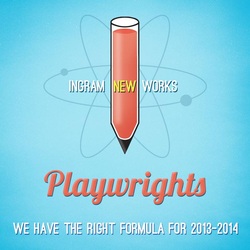 It is with, pretty much, giddy excitement that I can finally announce that I am one of four playwrights selected for the 2013-2014 Ingram New Works Project at Tennessee Repertory Theatre in Nashville! Alongside Nate Eppler, Andrew Kramer, and Dean Poynor, I'll be working on a brand new play during this season-long development workshop, culminating in a new works festival in May 2014. What a complete and awesome honor! From the Tennessee Rep website: The Ingram New Works Lab is intended to be an artistic home for emerging regional playwrights to share work, hone craft, receive direction, and springboard themselves into the next phase of their writing career, providing a fertile environment for the emergence of great new plays. Another amazing component to this opportunity is that the four playwrights (again, of which, I am one) will spend a week working with this year's Ingram New Works Fellow, which is Tony Award and Pulitzer Prize-winning playwright Doug Wright. Some of Mr. Wright's notable plays include I Am My Own Wife,Quills, The Little Mermaid, and Grey Gardens. You might understand, then, my excitement. 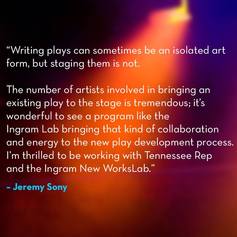 This is a fantastic opportunity and I cannot wait to begin my trips to Nashville to work with these talented writers and the wonderful artists at Tennessee Repertory Theatre! There will be more to share throughout this journey and I just want to thank Producing Artistic Director René D. Copeland, Playwright in Residence Nate Eppler, and everyone at Tennessee Rep who decided to include me in this project. [Image at right, courtesy of Tennessee Rep.] I'll close this out by sharing the words of one of the project's greatest supporters (i.e. the person for whom the project is named), Martha R. Ingram. The Ingram Charitable Fund is thrilled to make this opportunity available in support of new works for the theatre. New work is the life force of every art form. We have no better example than William Shakespeare who, after all, created nothing but new work. And the same can be said for Henrik Ibsen, Anton Chekhov, George Bernard Shaw, Arthur Miller, Tennessee Williams and the list goes on. Well said, Martha. Well said.
|
Jeremy's blog
Thoughts. From my brain. Anything to do with how we tell stories and the stories we tell each other. Literally and figuratively. About JeremyWriter. Husband. Father. Effulgent dreamer. A Fightin' Irishman (@NDdotEDU '01). A playwriting Bobcat (MFA in Playwriting, @OhioU '13). I write plays. I'm a geek. I wanted to be an astronaut. I go places in my head.
Categories
All
Archives
January 2022
|

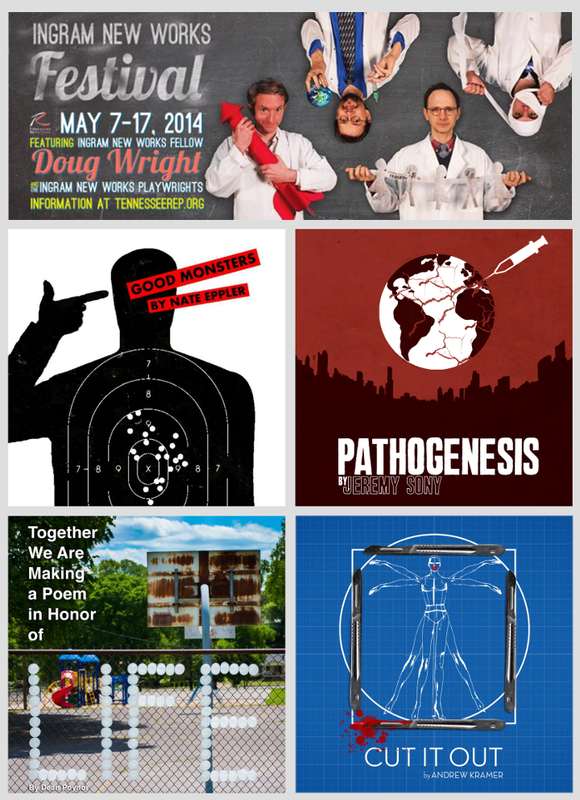
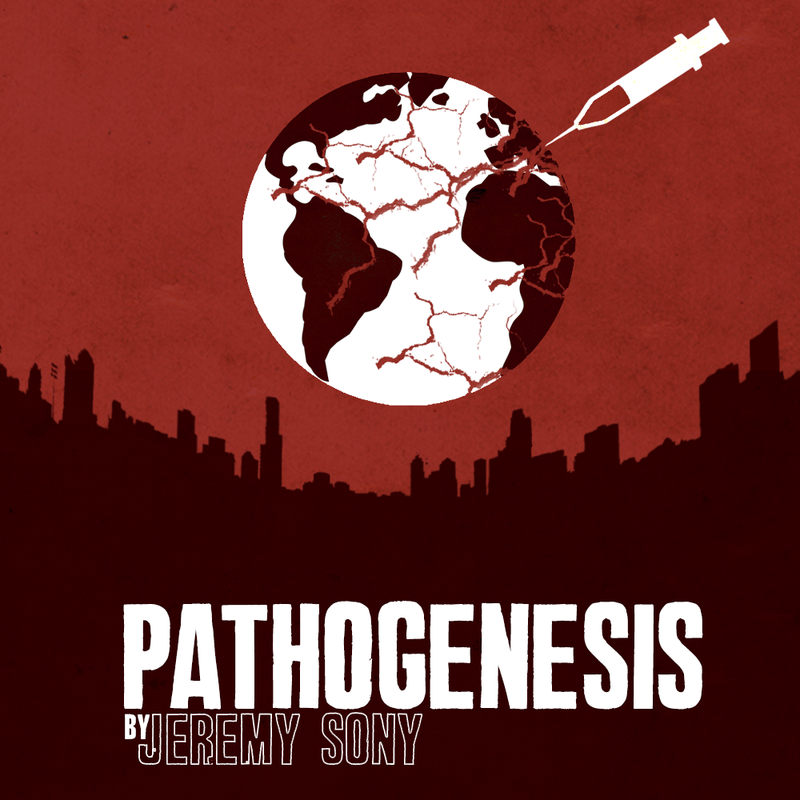
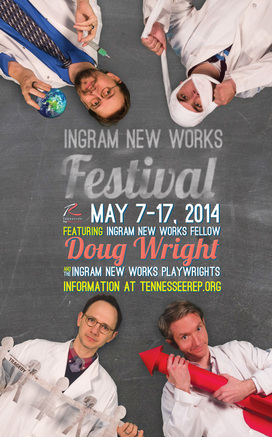
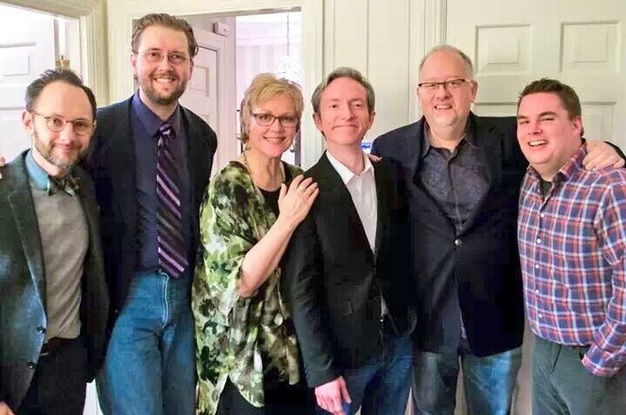
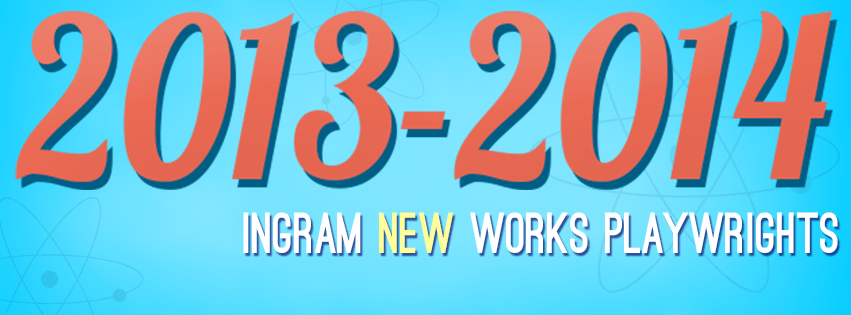
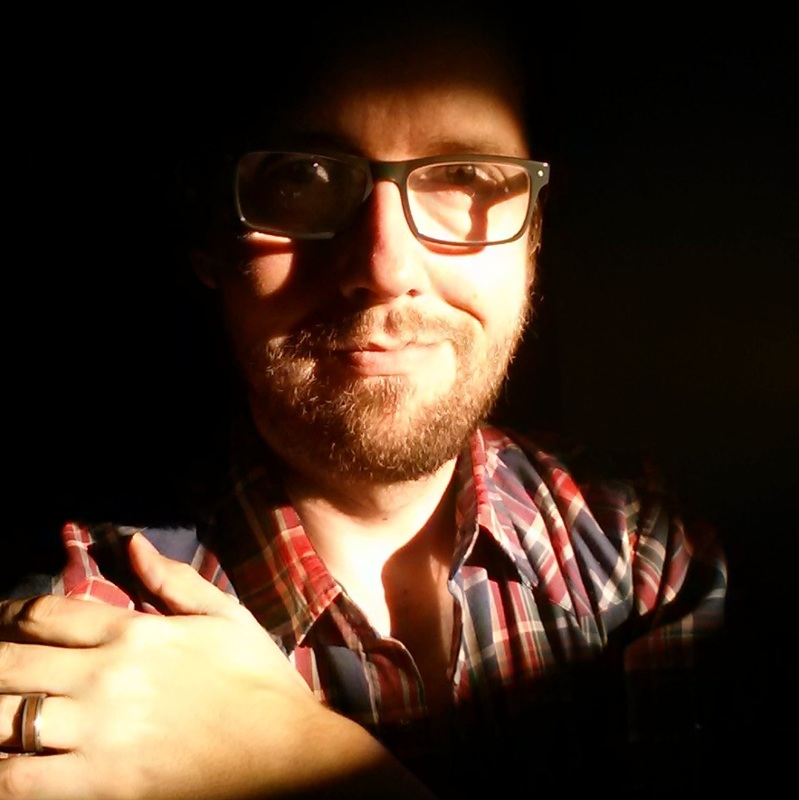
 RSS Feed
RSS Feed
